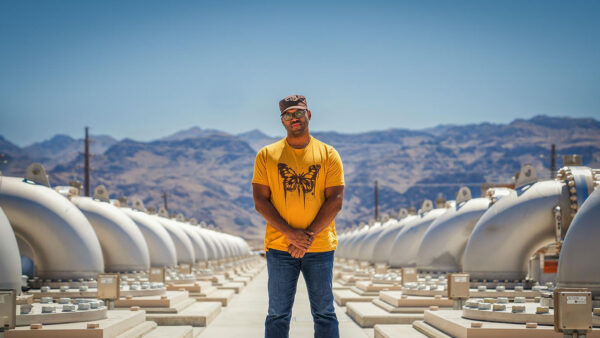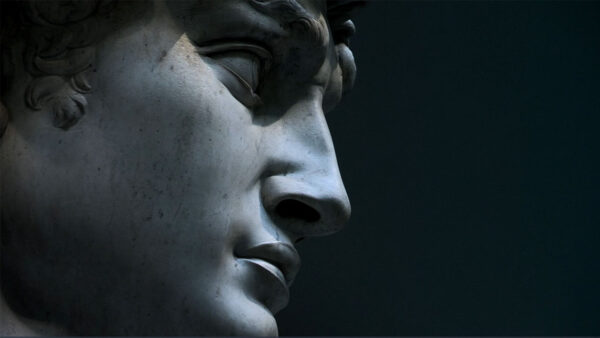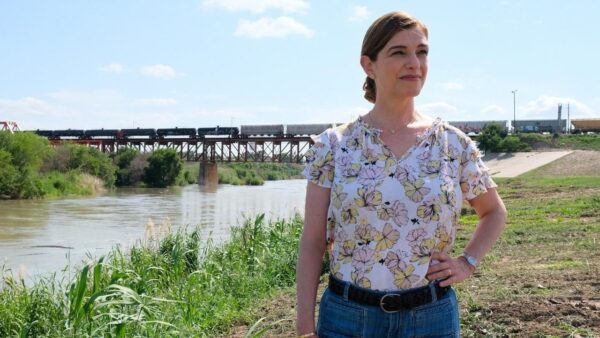Arizona PBS coverage of Jan. 6 Capitol riot hearings
June 9, 2022
Almost a year and a half after protesters took over the U.S. Capitol, all eyes will once again turn to Washington D.C., as the nation tunes in to watch a House committee release new information about what happened on January 6, 2021. Arizona PBS will cover the hearings live, both on TV and on this website.
Starting on Thursday, June 9, lawmakers began to lay out findings from their nearly yearlong investigation into the 2021 insurrection at the U.S. Capitol. The “House Select Committee to Investigate the January 6th Attack on the U.S. Capitol,” which is more-commonly known as the “January 6th Committee,” has been pursuing interviews and documents to examine what went on during this incident. The panel interviewed more than 1,000 people during its investigation, and only snippets of that testimony have been revealed to the public, mostly through court filings. The vast majority of the committee’s work has not been revealed… until now.
How can you watch?
Here are the expected dates and times of our coverage:
- Thursday, June 9 at 5 p.m. Arizona time – Watch Day 1
- Monday, June 13 at 10 a.m. Arizona time – Watch Day 2
- Thursday, June 16 at 10 a.m. Arizona time – Watch Day 3
- Tuesday, June 21 at 10 a.m. Arizona time – Watch Day 4
- Thursday, June 23 at 11:45 a.m. Arizona time – Watch Day 5
- Tuesday, June 28 at 9:30 a.m. Arizona time – Watch Day 6
- Tuesday, July 12 at 10 a.m. Arizona time – Watch Day 7
- Thursday, July 21 at 3 p.m. Arizona time – Link for Day 8
You can watch these hearings live in their entirety on all our platforms on Arizona PBS, including on television and on the web.
- ON TV | Channel 8.3 or Cox 88
- LIVESTREAM ON THE WEB | azpbs.org/live
Who will testify?
The select committee has yet to release details about who is expected to testify Thursday. But the public hearing, unlike other committee hearings, will be a mixture of traditional testimony as well as a multimedia presentation.
What’s involved in the hearing?
The first hearing is expected to be a table-setter for the rest of the subsequent hearings. The committee, composed of seven Democrats and two Republicans, plans to lay out several areas of information it has gathered throughout its investigation. The panel’s probe has so far been divided into a series of focus areas, including the efforts by former President Trump and his allies to cast doubt on the election and halt the certification of President Joe Biden’s victory; the financing and organizing of rallies in Washington that took place before the attack; security failures by Capitol Police and federal agencies; and the actions of the rioters themselves.
FAQs about the hearings:
Who makes up the committee?
- Chairman Bennie Thompson of Mississippi
- Six other Democrats: Pete Aguilar, Calif.; Zoe Lofgren, Calif.; Elaine Luria, Va.; Stephanie Murphy, Fla.; Jamie Raskin, Md.; Adam Schiff, Calif.
- Two Republicans: Liz Cheney, Wyo., and Adam Kinzinger, Ill.
Who is testifying?
The committee, which has been keeping details and scope of the hearings close to the chest, have only released a shortlist of who is expected to testify at the first hearing. They are:
Caroline Edwards – A U.S. Capitol Police officer injured during the Jan. 6 attacks. She suffered a brain injury during the insurrection.
Nick Quested – A documentary filmmaker who, along with his crew, captured the first violent moments by the insurrectionists against U.S. Capitol Police officers.
What is the big Arizona connection?
The panel has subpoenaed so-called fake electors from seven states — Arizona, Wisconsin, Georgia, Michigan, New Mexico, Nevada and Pennsylvania. Arizona Congressman Andy Biggs, State Republican Party Chair Kelli Ward and State Representative Finchem, who is running for Secretary of State, were all subpoenaed by the committee.
Ronald Hansen with the Arizona Republic told Arizona Horizon earlier this week that they will likely not be cooperating.
(Related link: Arizona Horizon | Congressional committee investigates Jan. 6 Capitol riot)
How did this committee come about?
The committee was created by the House itself in House Resolution, or H. Res. 503, which passed 222-190 last June. (Note: an “H. Res.” is usually a nonbinding resolution of the House. But it is also how the House forms and regulates committees, per its own rules. It does not need any Senate approval.)
What does the committee want to achieve?
Two things.
- First, to convey the gravity of the Jan. 6 attacks. The committee, in particular, will raise questions about the level of involvement by some Republican lawmakers, including Trump.
- The second goal of these hearings is to lay the possible groundwork for criminal cases. All criminal decisions will be up to the Department of Justice, but the committee aims to build up the evidence for further charges in some cases.
How many people have been arrested, charged and sentenced in connection with the Jan 6 insurrection?
Authorities have arrested people in practically all 50 states in connection with the riot. They include former police officers and U.S. military veterans, a five-time Olympic swimming medalist and the son of a New York City judge. Hundreds of people who went inside but didn’t take part in any destruction or violence are facing only misdemeanor crimes like picketing in the Capitol and disorderly conduct that call for up to six months behind bars. More than 250 people have been charged with assaulting or impeding law enforcement who were trying to protect the Capitol, including more than 85 accused of using a deadly or dangerous weapon or causing serious bodily injury to an officer. Others have been accused of assaulting members of the media — one an Associated Press photographer — or destroying media equipment.
More than 300 people have pleaded guilty to a slew of crimes, including conspiracy and assault. Among them are three Oath Keepers who have admitted to seditious conspiracy, are cooperating with investigators and could testify against their fellow extremists at trial. There have been seven trials so far in the District of Columbia’s federal court. The first five juries convicted the riot defendants of all charges. The convicted include Thomas Webster, a 20-year New York Police Department veteran who attacked an officer during the riot. Webster claimed he was defending himself when he tackled the officer and grabbed his gas mask. Jurors also rejected the defense of an Ohio man who claimed he was only “following presidential orders” from former President Donald Trump when he stormed the Capitol. Dustin Byron Thompson was convicted of obstructing Congress from certifying the electoral vote and other charges. A judge decided two other cases without a jury, acquitting one of the defendants and partially acquitting the other. U.S. District Court Judge Trevor McFadden, who was appointed by Trump, convicted Otero County, New Mexico, Commissioner Couy Griffin of illegally entering restricted Capitol grounds, but acquitted him of engaging in disorderly conduct. In the other misdemeanor case, McFadden found Matthew Martin of New Mexico not guilty of charges that he illegally entered the Capitol and engaged in disorderly conduct, saying it was reasonable for Martin to believe that outnumbered police officers allowed him and others to enter through the Rotunda doors. Nearly 200 people have been sentenced so far. The punishments have ranged from probation to more than five years behind bars. About 100 people who were charged with lower-level crimes have avoided going to prison, although some of those received time in home detention.
So, what’s next?
The two most high-profile trials — involving the Oath Keepers and Proud Boys — are expected to take place this summer and fall. Henry “Enrique” Tarrio, who was once the Proud Boys’ top boss, and four others linked to the group were charged on Monday with seditious conspiracy after previously facing other conspiracy counts. They are scheduled to stand trial beginning Aug. 9.























